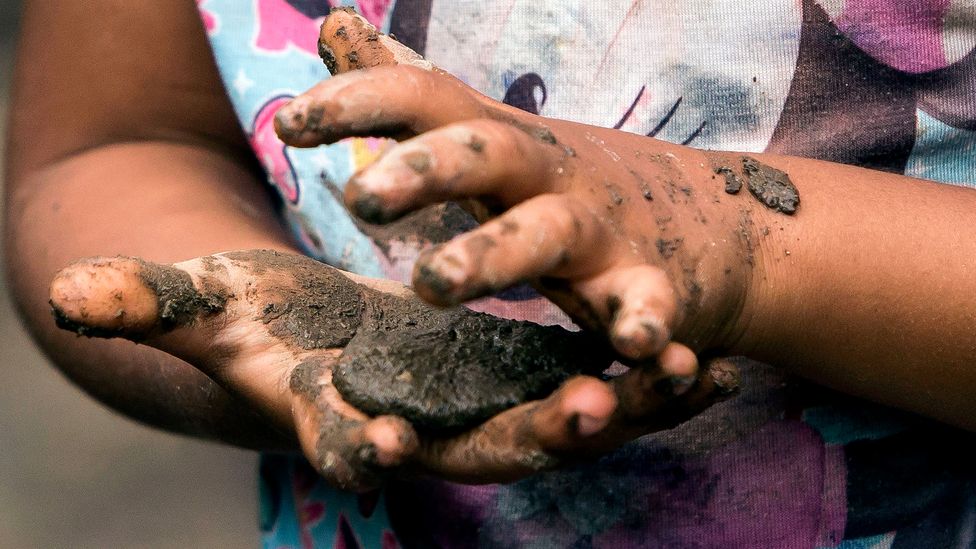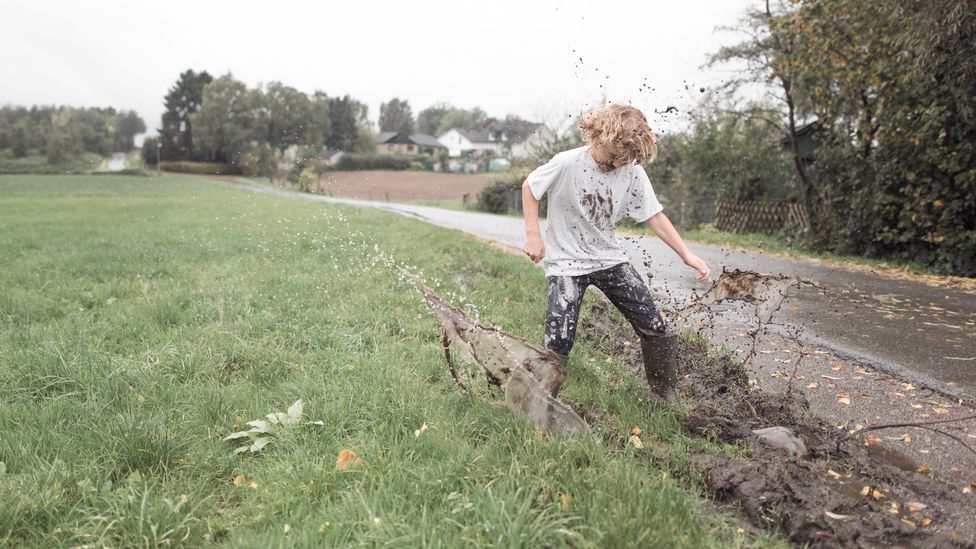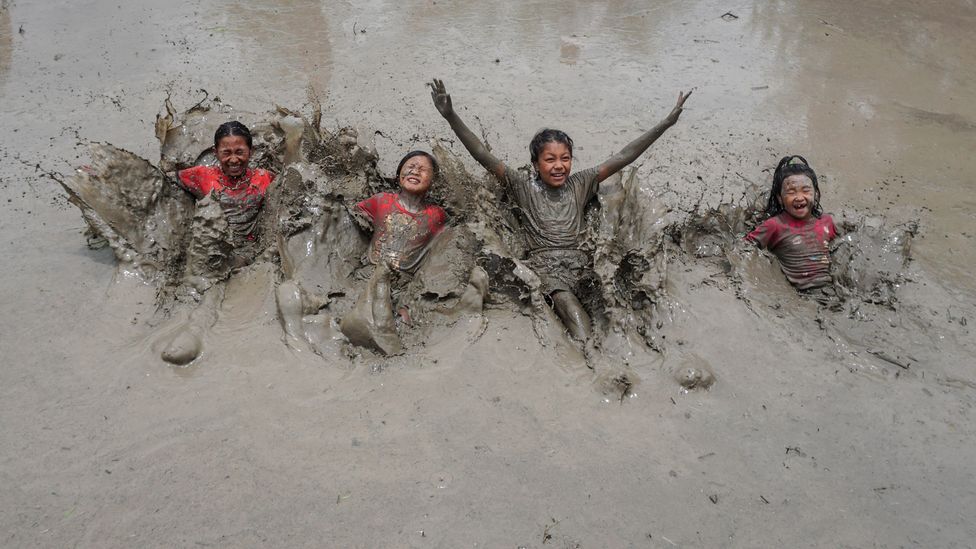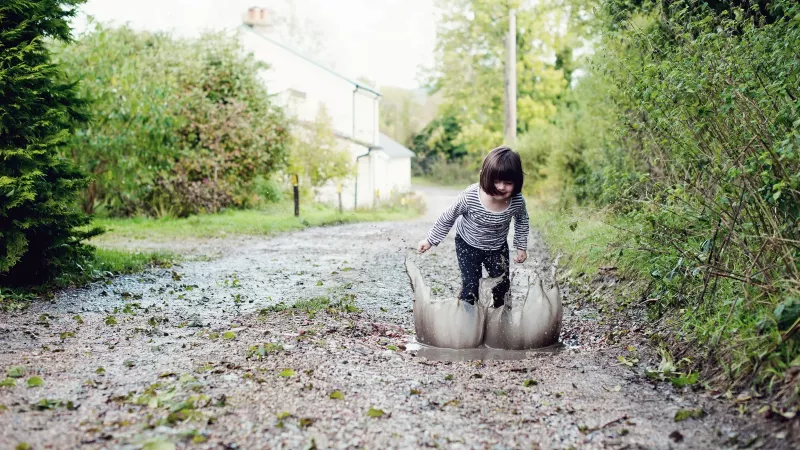Children love getting dirty. They are drawn to puddles like muddy magnets, with no regard for footwear or the color of their clothing. But getting mucky could have a powerful effect on their well-being, too. "Don't get dirty!" was once a constant family refrain, as parents despairingly watched their children spoil their best clothes. Whether they were running through farmers' fields, climbing trees, or catching tadpoles, it was inevitable that children's whites would turn brown before the day was over. Today, many parents may secretly wish their children had the chance to pick up a bit of grime. With the rise of urbanism, and the allure of video games and social media, contact with nature is much rarer than in the past. For many, there is simply no opportunity to get muddy. What is gained in laundry bills may be lost in the child's well-being?
Read Also: Women's Split Triplet—2019 CrossFit Games

According to recent research, the dirt outside is teaming with friendly microorganisms that can train the immune system and build resilience to a range of illnesses, including allergies, asthma and even depression and anxiety. These findings show that outdoor exercise is not only beneficial because of the chance to roam free – but that certain natural materials, such as soil and mud, also contain surprisingly powerful microorganisms whose positive impact on children's health we are only beginning to fully understand.
Mental Restoration
Many of the psychological benefits of outdoor play are already well-established. Our brains evolved in natural landscapes, and our perceptual systems are particularly well suited to wild outdoor spaces.
This means that natural scenes provide the perfect level of stimulation, which is thought to help recharge the brain when it is tired and easily distractable. Supporting this theory, one study from 2009 found that children with attention-deficit hyperactivity disorder (ADHD) were better able to concentrate following a 20-minute walk in the park, compared to a 20-minute walk on the streets of a well-kept urban area. Being in proximity to grass and trees seemed to have had a beneficial effect on their minds. The authors recommended using such "doses of nature" as a safe and accessible way of supporting children with ADHD, alongside other tools.

Besides these restorative effects, outdoor play can offer valuable learning experiences. For example, the act of molding and kneading materials like mud or sand can help children develop the way their senses and movement interact, known as sensorimotor development, according to Francesco Vitrano, a child neuropsychiatrist, psychotherapist, and lecturer at the University of Palermo, Italy, who has a long experience of applying these therapies. This allows the child to gradually understand his or her bodily signals.
Such activities – away from the house or classroom – may also help children to find ways to cope with emotions that may be hard to explore in other environments. So-called "sand tray therapy", which involves using sand and miniature figurines to express one's thoughts and feelings, is an accepted form of counseling for children who are struggling to verbalize their emotional state.
When it comes to the child's physical health, the most obvious advantage of outdoor play may be exercise. A child may finexercisedier to build up strength and stamina in a large open space resulting in a reduced risk of obesity, according to one study led by Elizabeth Gershoff, professor of human development and family sciences at the University of Texas at Austin, US.
The latest findings, however, suggest there could be a host of other advantages to playing in natural environments – and the secret may be alive and wriggling around in the mud itself.
Old friends
The new research offers a fresh take on the "hygiene hypothesis", first postulated in the late 1980s. According to this idea, the great reduction in childhood infections over the 20th Century had an undesirable side effect on people's immune systems, leading them to become overreactive to the slightest stimulation. The result was thought to be a rise in asthma, hay fever, and food allergies.
Many scientists now dislike the term hygiene hypothesis, however, since it seemed to discourage important behaviors like hand-washing. And they balk at the idea that infections, per se, are beneficial for children. "It was quite problematic from a public health perspective," says Christopher Lowry, a professor of integrative physiology and the director of the behavioral neuroendocrinology laboratory at the University of Colorado, Boulder, US.
Instead, it is the non-infectious organisms that are now thought to be key – rather than the ones that actually make our children sick. These "old friends" have been around for much of our evolutionary history. They are mostly harmless and train the immune system to moderate its activity, rather than overreacting to any potential invader.
Importantly, our bodies meet these old friends whenever we spend time in nature. With increased urbanisation and reduced outdoor play, many children now lack that exposure – meaning that their immune systems are more sensitive to any threat, and more likely to go into overdrive.

Friendly microbes in the gut can improve our health, and they may also act through our skin
Various studies support this idea. People who grow up on farms are generally less likely to develop asthma, allergies, or auto-immune disorders like Crohn's disease – thanks, apparently, to their childhood exposure to a more diverse range of organisms in the rural environment that had encouraged more effective regulation of the immune system.
Much of the healthy stimulation, afforded by these bugs, is thought to come through the digestive system – it is now well-known that friendly microbes in the gut can improve our health in multiple ways. But they may also act on and through our skin, according to Michele Antonelli, a doctor from Reggio Emilia, Italy, who has researched the ways that mud therapies can influence health.
The outer layer of our body hosts many species of microbes, he says, and people with disorders such as atopic dermatitis (a common form of eczema) and psoriasis seem to have an impoverished community of organisms. The microbial diversity even seems to be linked to conditions like arthritis. "These microorganisms can play a major role in many major chronic diseases," he says.




